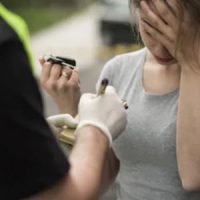Evidence In Florida DUI-Drug Cases

In many jurisdictions, there are more “stoned” drivers than “drunk” drivers. In all jurisdictions, DUI-drug cases almost always have evidence issues. Since there is no widely-available Breathalyzer for marijuana and other drugs, at least not yet, the state must rely exclusively on circumstantial evidence. The conviction rate in non-chemical test cases is almost 50 percent lower than the conviction rate in chemical test cases.
So, a Tampa DUI attorney has a good chance to aggressively challenge the state’s proof. Even if the defendant was morally guilty, if there is insufficient evidence to prove the charge, the defendant is not legally guilty. This aggressive stance is necessary, because DUI has some of the highest direct and collateral costs of any criminal offense in Florida.
Florida’s DUI-Drug Law
The drunk driving laws are rather uniform from state to state. But the drugged driving laws vary significantly. In some states, it’s illegal to drive under the influence of any substance, even something like sugar or caffeine. In other states, it’s only unlawful to drive under the influence of illegal drugs.
The DUI-drug law in the Sunshine State is basically in the middle. Under Section 316.193, it’s illegal to drive under the influence of a “controlled substance” if “the person’s normal faculties are impaired.”
Controlled substances have a very long, complex definition in Florida. Basically, if you can buy it right off the shelf, it is not a controlled substance. Things like Ny-Quil and Sominex usually are not controlled substances in Florida. If you need a prescription, must fill out a form, ask a clerk to get the drug off the shelf, or if it’s illegal to possess, it’s probably a controlled substance. Impairment usually involves the Field Sobriety Test results. More on those below.
Drug Recognition Experts
If officers suspect that a motorist is driving under the influence of drugs, they often summon DREs to the scene. Evidence in this area includes:
- Erratic driving prior to the stop,
- Open medicine containers in the passenger area,
- Physical symptoms, like glassy eyes,
- Current medical prescriptions, and
- Defendant’s statements about substance use.
Technically, DREs are specially trained to spot drug use. However, this “training” usually consists of little more than a police-sponsored seminar. Furthermore, DRE intervention is usually a self-fulfilling prophecy. Officers call DREs because they suspect drug use. Thus, unsurprisingly, DREs almost always conclude that the driver was stoned.
Field Sobriety Tests
Officers usually administer the same FSTs to DUI-drug defendants as DUI-alcohol defendants. The tests were originally designed to detect alcohol use. So, there are some inherent general weaknesses.
There are some specific weaknesses as well. The walking-a-straight-line test is a good example. Officers are supposed to make accommodations for people with mobility impairments or people who aren’t wearing athletic shoes. But for various reasons, these accommodations often do not happen. Furthermore, it’s almost impossible to walk an imaginary line heel to toe.
Other approved FSTs include the DUI eye test and the one-leg stand. Unapproved tests, which are only admissible for limited purposes, if they are admissible at all, include the finger-to-nose test and the reciting-the-ABCs test.
The defendant’s performance on the tests must be so bad that there is evidence beyond any reasonable doubt that the defendant was under the influence of an illegal substance.
Count on a Thorough Hillsborough County Attorney
DUI-drug cases are difficult to prove in court. For a free consultation with an experienced criminal defense lawyer in Tampa, contact the OA Law Firm. After-hours visits are available.
